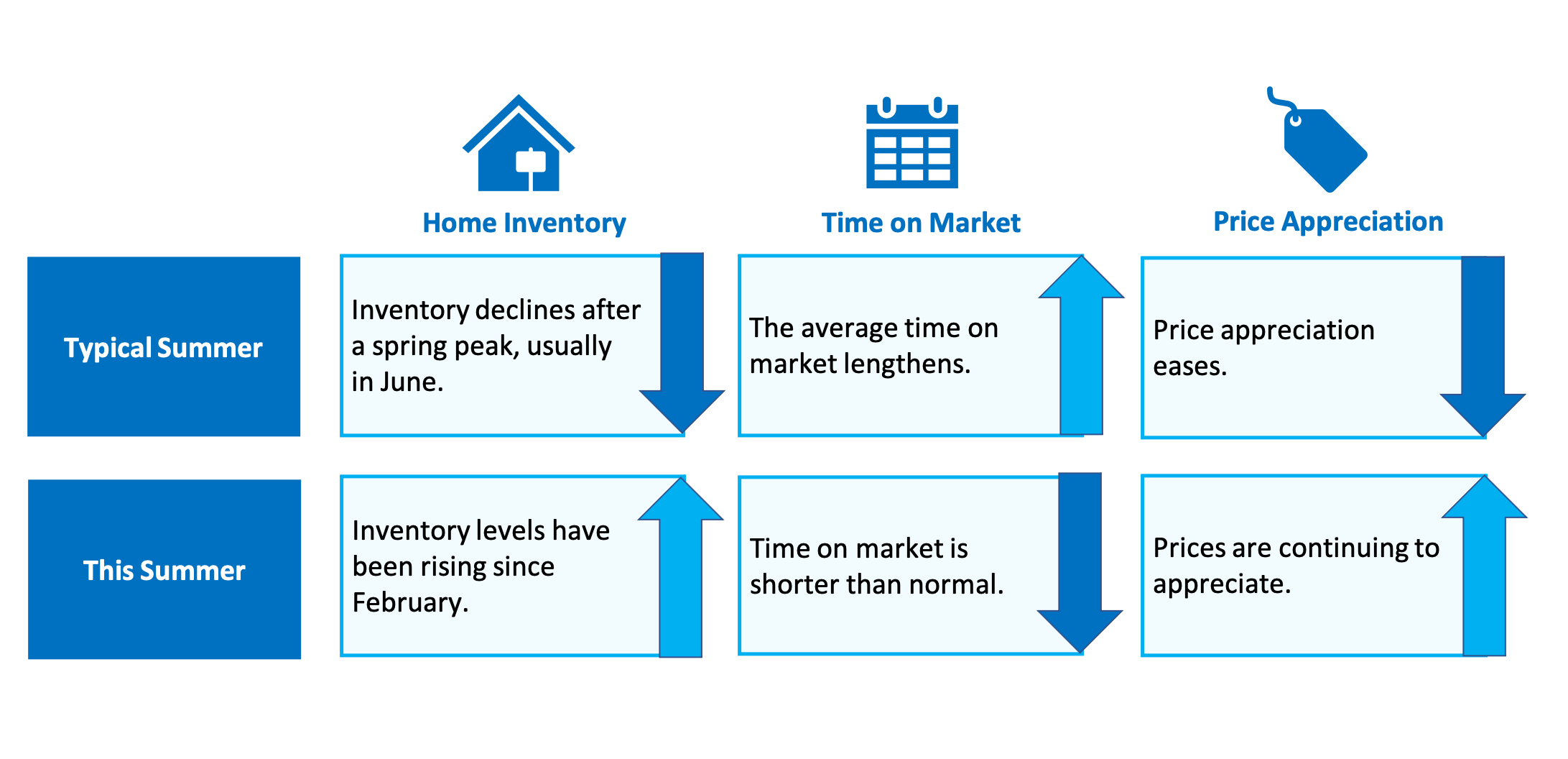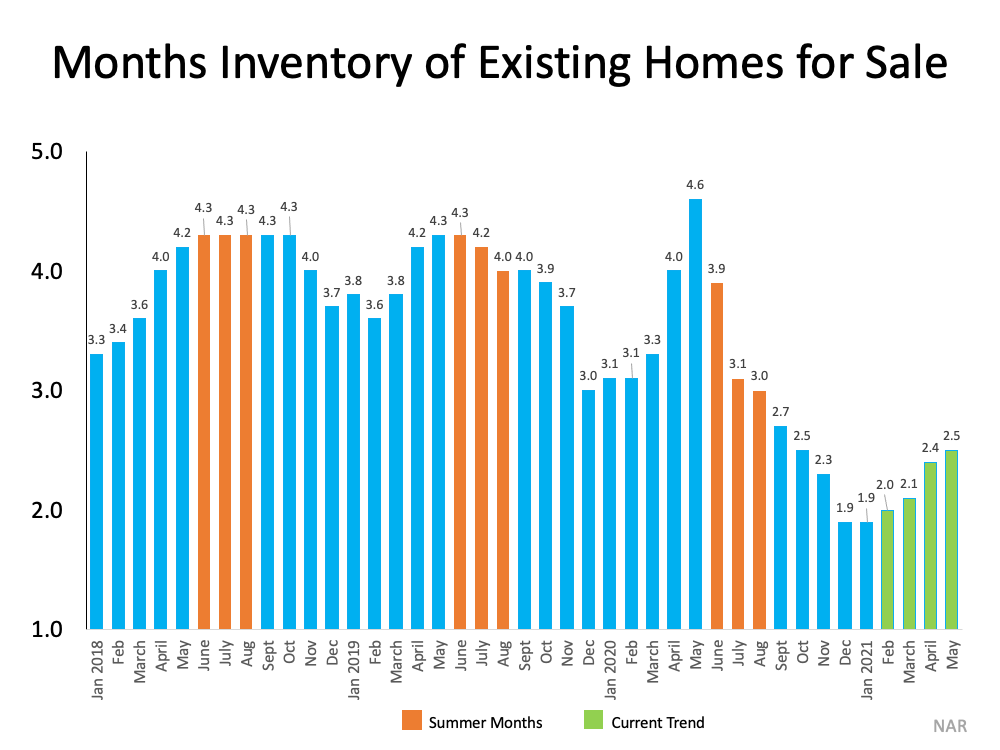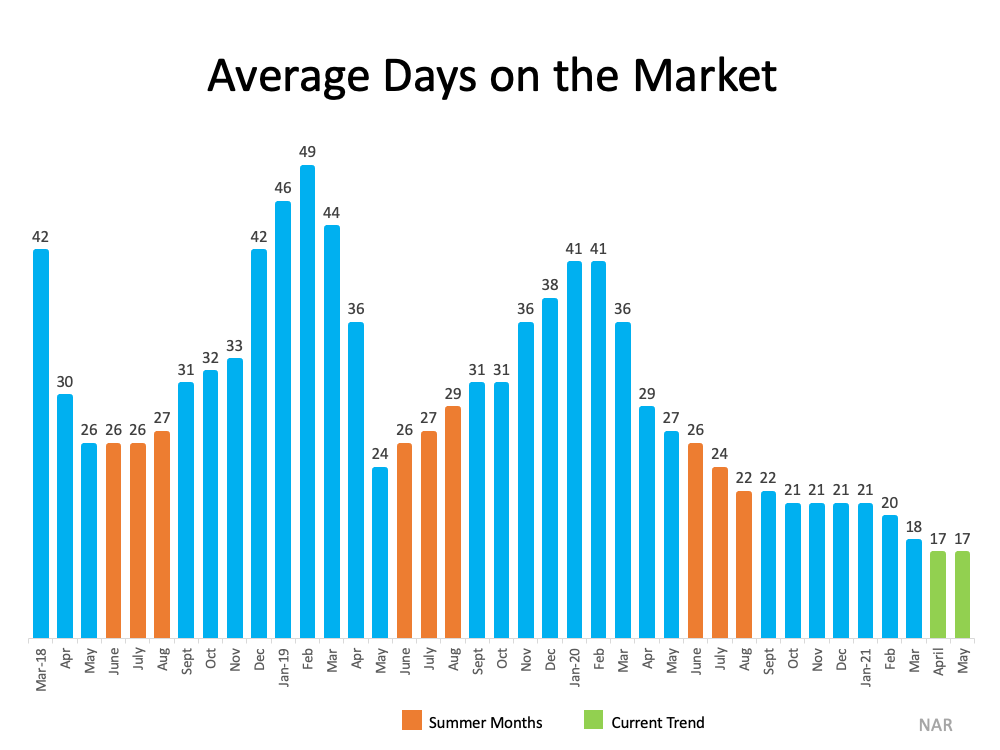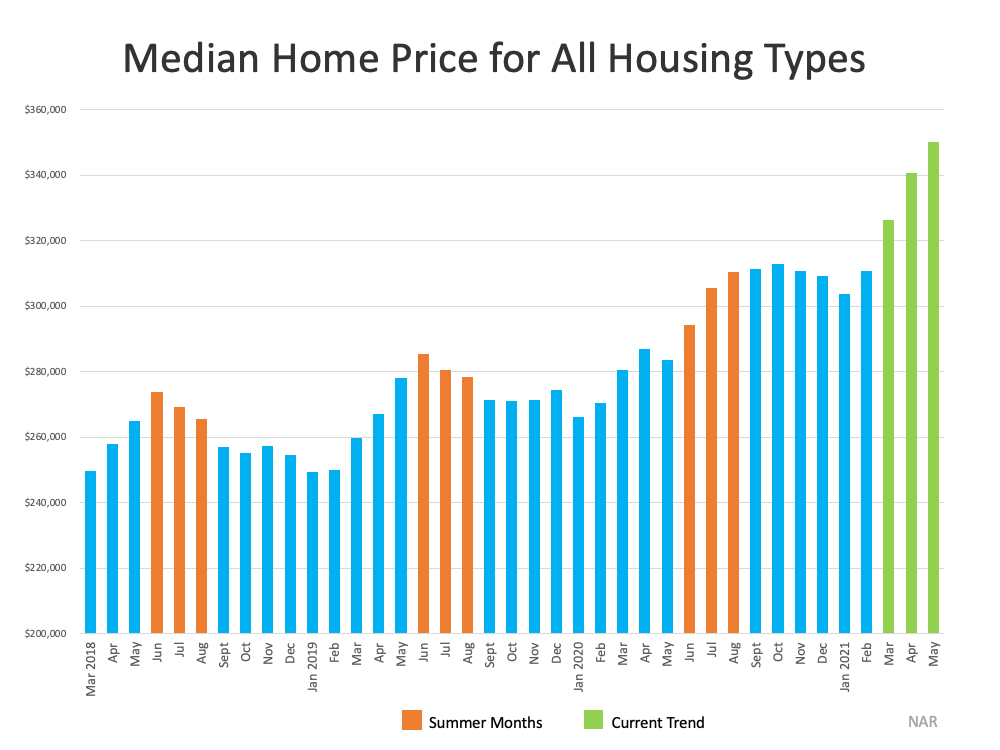
If you’re a prospective buyer or seller, it’s important to understand the current real estate market conditions and how they affect you. The Counselors of Real Estate (CRE) just released its Top Ten Issues Affecting Real Estate report. Here are three hot topics from the list and how they impact today’s housing market.
The past year ushered in many changes to the real estate industry, especially when it comes to technology. The CRE report elaborates on this:
“Lockdown-driven changes in our work, in the economy, in social structures, and in our personal behavior have pushed our reluctance aside. The acceleration and adoption of technology during the pandemic has impacted everything, and real estate is no exception.”
For real estate, innovations like digital documentation, virtual tours, and video chat enable agents to connect with clients no matter their location. These options are ideal for prospective buyers and sellers who aren’t local to the area or those that need the added flexibility signing documents online or doing virtual tours provide. That’s why many trusted real estate advisors will continue to use these technologies moving forward to best serve their clients.
Working from home became the reality for many individuals during the pandemic, and the latest list from the CRE identified remote work and mobility as an important influence on the real estate market. As the report notes:
“…the pandemic universally caused a movement away from urban cores, particularly for those with higher incomes who could afford to move and for lower-income individuals seeking lower costs of living. Most of these relocations remained within their original region—84%—and, while some are returning, it is unknown as to the permanence of these movements or whether they represent a true urban exodus.”
With the added mobility remote work offers, where people are moving and where they can ultimately purchase a home is less dependent on a physical office location. This newfound flexibility is giving remote workers the opportunity to move to more affordable areas and buy more home for their money.
Finally, the limited supply of houses for sale and the related affordability challenges also makes CRE’s list of key factors this year:
“According to the National Association of Realtors®, the state of America’s housing inventory is dire, with a chronic shortage of affordable and available homes needed to support the nation’s population.”
There is good news. Homes are still more affordable than they have been historically thanks to today’s low mortgage rates. And while housing supply is still low, we’re seeing steady increases in the number of homes coming to market, which gives hope to homebuyers. As the supply of homes for sale improves, buyers will have more options.
New technology, remote work, housing supply, and home affordability are key factors in the housing market right now for both buyers and sellers. If you want to better understand how these topics can impact you, let’s connect today.

In real estate, it’s normal to see ebbs and flows in the market. Typically, the summer months are slower-paced than the traditionally busy spring. But this isn’t a typical summer. As the economy rebounds and life is returning to normal, the real estate market is expected to have an unusually strong summer season.
Here’s how this summer is stacking up against the norm and what it means for you.
According to the latest Existing Home Sales Report from the National Association of Realtors (NAR), inventory levels have been rising since February of this year. Looking at the graph below, there’s a clear upward trend, as shown in the green bars. Currently, there’s roughly a 2.5 months’ supply of homes for sale. And while inventory is trending up as more houses are coming to the market, it’s still much lower than several of the previous summers, as the orange bars indicate. If you’re looking to buy, some relief is on the way in the form of more homes coming to the market. Just remember, we still have less inventory than the norm, so be patient in your search.
If you’re looking to buy, some relief is on the way in the form of more homes coming to the market. Just remember, we still have less inventory than the norm, so be patient in your search.
If you’re thinking of selling, now is the time. Work with your agent to list your house before it has more competition on the market.
Unlike the typical summer trend, time on the market is moving at the fastest speed we’ve seen since NAR started collecting this survey-based information in 2011. The most recent Realtors Confidence Index shows that the average home is on the market for just 17 days, as shown in green in the graph below. This means houses are selling at a much faster pace than a typical summer, which the orange bars represent. If you’re looking to buy, this means you need to be prepared to move fast. Brace for a quick pace and rely on your agent to stay in the know on the available homes in your area.
If you’re looking to buy, this means you need to be prepared to move fast. Brace for a quick pace and rely on your agent to stay in the know on the available homes in your area.
If you’re thinking of selling, data shows your house will likely sell quickly. If you’re worried about where you’ll go once your house sells, consider a newly built home as a good way to move up.
The last big factor making this an unusually strong market this summer is home price appreciation. According to the State House Price Index from the Federal Housing Finance Agency (FHFA), we’re currently experiencing double-digit house price appreciation and have an average of 12.6% appreciation across the country. The graph below uses data from NAR to show a more granular view of how prices have changed month-to-month over the past few years. The green bars show the current price appreciation we’re experiencing today. Our current levels are well above what we’ve seen in recent summers, shown by the orange bars. If you’re looking to buy, competition and bidding wars are driving prices up. Getting pre-approved can show the seller you’re serious and help you know what you can afford. Once you do, work with your agent to make a strong offer that stands out.
If you’re looking to buy, competition and bidding wars are driving prices up. Getting pre-approved can show the seller you’re serious and help you know what you can afford. Once you do, work with your agent to make a strong offer that stands out.
If you’re thinking of selling, seize this opportunity to use your additional equity from this price appreciation to power your next move.
This isn’t a typical summer. Whether you’re buying or selling, let’s connect to talk about how you can capitalize on today’s market conditions to sell your house or find your dream home.

The question of whether the real estate market is a bubble ready to pop seems to be dominating a lot of conversations – and everyone has an opinion. Yet, when it comes down to it, the opinions that carry the most weight are the ones based on experience and expertise.
Here are four expert opinions from professionals and organizations that have devoted their careers to giving great advice to the housing industry.
The Joint Center for Housing Studies in their The State of the Nation’s Housing 2021 report:
“… conditions today are quite different than in the early 2000s, particularly in terms of credit availability. The current climb in house prices instead reflects strong demand amid tight supply, helped along by record-low interest rates.”
Nathaniel Karp, Chief U.S. Economist at BBVA:
“The housing market is in line with fundamentals as interest rates are attractive and incomes are high due to fiscal stimulus, making debt servicing relatively affordable and allowing buyers to qualify for larger mortgages. Underwriting standards are still strong, so there is little risk of a bubble developing.”
Bill McBride of Calculated Risk:
“It’s not clear at all to me that things are going to slow down significantly in the near future. In 2005, I had a strong sense that the hot market would turn and that, when it turned, things would get very ugly. Today, I don’t have that sense at all, because all of the fundamentals are there. Demand will be high for a while, because Millennials need houses. Prices will keep rising for a while, because inventory is so low.”
Mark Fleming, Chief Economist at First American:
“Looking back at the bubble years, house prices exceeded house-buying power in 2006 nationally, but today house-buying power is nearly twice as high as the median sale price nationally…
Many find it hard to believe, but housing is actually undervalued in most markets and the gap between house-buying power and sale prices indicates there’s room for further house price growth in the months to come.”
All four strongly believe that we’re not in a bubble and won’t see crashing home values as we did in 2008. And they’re not alone – Goldman Sachs, JP Morgan, Morgan Stanley, and Merrill Lynch share the same opinion.